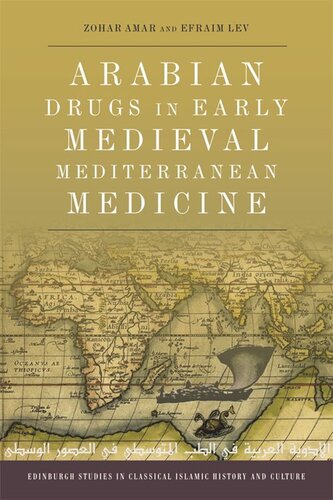

Most ebook files are in PDF format, so you can easily read them using various software such as Foxit Reader or directly on the Google Chrome browser.
Some ebook files are released by publishers in other formats such as .awz, .mobi, .epub, .fb2, etc. You may need to install specific software to read these formats on mobile/PC, such as Calibre.
Please read the tutorial at this link: https://ebookbell.com/faq
We offer FREE conversion to the popular formats you request; however, this may take some time. Therefore, right after payment, please email us, and we will try to provide the service as quickly as possible.
For some exceptional file formats or broken links (if any), please refrain from opening any disputes. Instead, email us first, and we will try to assist within a maximum of 6 hours.
EbookBell Team

4.8
64 reviewsFor more than one thousand years Arab medicine held sway in the ancient world, from the shores of Spain in the West to China, India and Sri Lanka (Ceylon) in the East. This book explores the impact of Greek (as well as Indian and Persian) medical heritage on the evolution of Arab medicine and pharmacology, investigating it from the perspective of materia medica – a reliable indication of the contribution of this medical legacy.
Focusing on the main substances introduced and traded by the Arabs in the medieval Mediterranean – including Ambergris, camphor, musk, myrobalan, nutmeg, sandalwood and turmeric – the authors show how they enriched the existing inventory of drugs influenced by Galenic-Arab pharmacology. Further, they look at how these substances merged with the development and distribution of new technologies and industries that evolved in the Middle Ages such as textiles, paper, dyeing and tanning, and with the new trends, demands and fashions regarding spices, perfumes, ornaments (gemstones) and foodstuffs some of which can be found in our modern-day food basket.